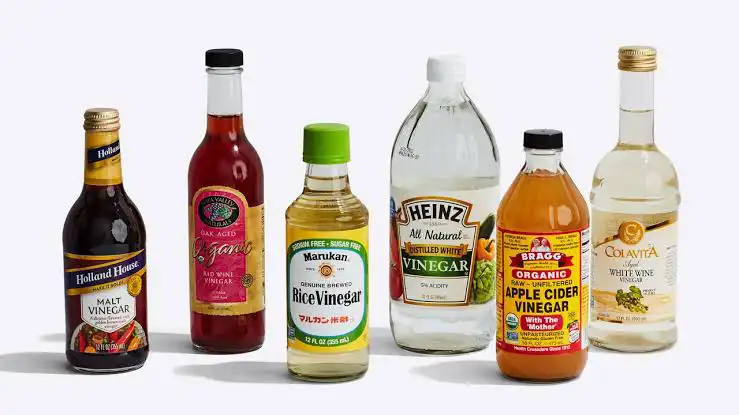Is Wine Vinegar Halal or Haram in Islam?

Muslims often face questions about the permissibility of certain foods and ingredients, and wine vinegar is one such example. With wine strictly prohibited in Islam, many wonder whether vinegar made from wine follows the same ruling.
While vinegar itself is widely consumed, the involvement of wine in its production raises concerns. In this article, we’ll explore the different scholarly opinions on wine vinegar, examining both natural and commercial processes to clarify its halal status.
Why the Confusion About Wine Vinegar?
The name “wine vinegar” alone can be alarming to those who follow Islamic dietary rules. Since wine is made from fermented grapes or other fruits and contains alcohol, Muslims may worry that wine vinegar could retain some of these forbidden elements.
Additionally, with commercial vinegar frequently listed in store-bought sauces, dressings, and marinades, understanding whether it is halal or haram becomes essential for mindful consumption.
This topic is not just a matter of personal preference but touches on the principles of fiqh (Islamic jurisprudence).
Different schools of thought interpret the transformation from wine to vinegar differently, which leads to varying rulings on whether it can be consumed. Knowing these rulings helps Muslims make informed choices that align with their faith.
Is Wine Vinegar Halal?
The question of whether wine vinegar is halal revolves around the production process and the role of human involvement. Scholars from the Shafi’i, Hanbali, and some Maliki schools hold that wine vinegar is permissible only when the transformation happens naturally, without human interference.
In contrast, the Hanafi school considers the transformation itself as purifying, making wine vinegar halal even when produced commercially.
How is Wine Vinegar Produced?
Wine vinegar is produced through a fermentation process where wine is transformed into vinegar. This chemical transformation occurs when bacteria convert ethanol (alcohol) into acetic acid. Acetic acid is the primary component that gives vinegar its sour taste and is free from intoxicating properties.
There are two ways this transformation can take place:
- Natural Fermentation: When wine is left exposed to air, it undergoes spontaneous fermentation as oxygen interacts with the alcohol. This process can take weeks or even months, resulting in vinegar without human interference.
- Commercial Production: In a factory setting, manufacturers use controlled processes to speed up the transformation. They may introduce specific bacteria (like Acetobacter) or other catalysts to convert alcohol into acetic acid faster. This ensures consistency and quality in the final product, which is then bottled and sold as wine vinegar.
Many Muslims wonder whether the involvement of human intervention in commercial production impacts the halal status of wine vinegar. Scholars from different Islamic schools of thought provide varied answers based on their interpretations.
READ ALSO: Is Mozzarella Cheese Halal or Haram?
Rulings on Wine Vinegar from Different Schools of Thought
Islamic scholars have deliberated on whether the production method affects the permissibility of wine vinegar. Their views differ, with some being more cautious about human involvement, while others consider the end result—the complete transformation into vinegar—as the key factor.
1. Shafi’i, Hanbali, and Some Maliki Opinions
- According to these scholars, wine vinegar is halal only if the wine naturally turns into vinegar without human involvement.
- If humans interfere by adding bacteria or using other means to facilitate the process, the resulting vinegar is considered haram.
- This ruling is based on the belief that the impurity (najasah) of wine cannot be removed if humans deliberately alter its state.
Relevant Hadith
Anas bin Malik (RA) reported:
“The Prophet of Allah (peace and blessings be upon him) was asked whether wine could be changed to be used as vinegar. He said, ‘No.’” (Sahih Muslim, v.2, p.163; Sunan Abu Dawud, v.2, p.161)
This hadith suggests that deliberately transforming wine into vinegar is not permissible. For this reason, scholars from the Shafi’i and Hanbali schools consider wine vinegar halal only if it forms naturally without human interference.
They often advise Muslims to avoid commercially produced wine vinegar since it usually involves deliberate fermentation.
2. Hanafi School of Thought
- The Hanafi school of thought adopts a more lenient approach, ruling that wine vinegar is permissible regardless of whether it forms naturally or through human intervention.
- Hanafis argue that once wine transforms into vinegar, it undergoes a complete chemical change (istihalah), which purifies the substance.
- This means that even commercially produced wine vinegar, with its human involvement, is considered halal to consume.
Supporting Evidence from the Hanafi Tradition
Darul Ifta Birmingham cites a narration from Saaidah Aisha (RA), who was asked whether wine could be changed into vinegar. She responded:
“There is nothing wrong with it, as it is food (idaam).” (Musanaf Ibn Abi Shaibah, v.5, p.98)
This lenient ruling reflects the idea that once the intoxicating element of wine is removed through fermentation, the product becomes pure. Therefore, Hanafi scholars permit both natural and commercially processed wine vinegar as halal.
Is There Any Alcohol Left in Wine Vinegar?
A common concern among Muslims is whether wine vinegar retains any traces of alcohol after fermentation. During the process, nearly all the ethanol in wine is converted into acetic acid.
In cases where minimal alcohol remains, it is typically below 0.5%—an amount too small to cause intoxication. Most scholars agree that such trace amounts are negligible and do not affect the halal status of the product.
For those who remain concerned, there are many alternatives available, such as apple cider vinegar or malt vinegar, which are free from any association with wine.
How to Approach Wine Vinegar in Daily Life
Given the differences in opinions among scholars, Muslims can adopt practical steps to make the best decision according to their beliefs:
- Follow Your Madhhab (School of Thought): If you adhere to the Shafi’i, Hanbali, or Maliki schools, it may be better to avoid commercial wine vinegar unless you are sure it was naturally fermented.
- Choose Alternative Vinegars: Apple cider vinegar, white vinegar, and balsamic vinegar are excellent substitutes for wine vinegar and come without the same doubts.
- Consult Local Scholars: If you encounter uncertainty, reach out to trusted scholars or fatwa councils who align with your school of thought for personalized guidance.
- Check Product Labels: Some manufacturers specify whether their vinegar was naturally fermented, helping you make informed purchasing decisions.
Summary of the Scholarly Opinions
| School of Thought | Halal Status of Wine Vinegar | Reasoning |
|---|---|---|
| Shafi’i, Hanbali, Some Maliki | Halal only if natural fermentation occurs | Human intervention makes it impure |
| Hanafi | Halal regardless of production method | Transformation purifies the substance |
Final Thoughts
Given the differing opinions, it is important for Muslims to follow the rulings of their school of thought and seek guidance from knowledgeable scholars when needed.
For those who prefer to avoid any doubt, alternative vinegars are widely available. Ultimately, Allah knows best, and it is our intention and effort to follow His commands that matter most.
By being mindful of the production process and consulting Islamic teachings, Muslims can ensure their dietary choices align with their faith and values. May Allah guide us all toward what is pure and permissible.






